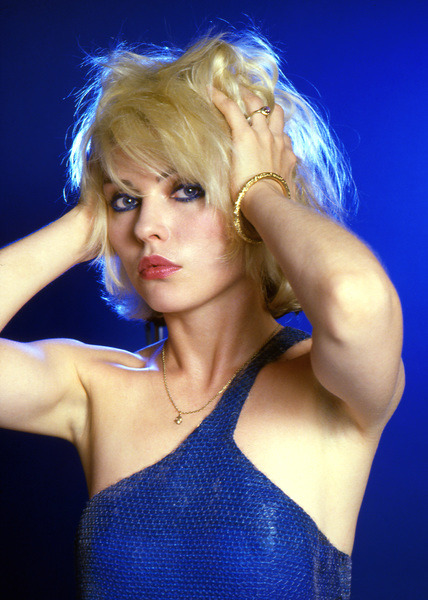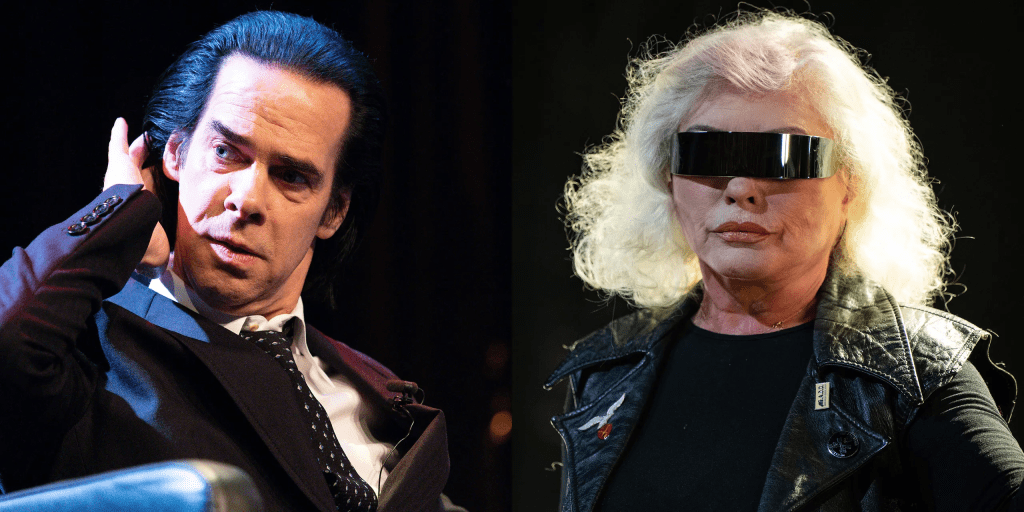Debbie Harry, the legendary lead singer of Blondie, has left an indelible mark on the music world with her distinctive style, powerful voice, and undeniable charisma. As a pioneering figure in the punk and new wave scenes, she has transcended decades, capturing the hearts of fans worldwide. From her early days exploring New York City’s underground art scene to her reign as a rock icon, Debbie Harry’s story is one of resilience, creativity, and constant reinvention. In this article, we’ll explore her life, career, and lasting influence on music and culture.
Early Life: From New Jersey to New York City

Deborah Ann Harry was born on July 1, 1945, in Miami, Florida. Shortly after her birth, she was adopted by Richard and Catherine Harry, who raised her in Hawthorne, New Jersey. Growing up, Debbie developed a deep appreciation for music and the arts, singing in school choirs and developing a passion that would shape her future. Though she attended Centenary College in Hackettstown, New Jersey, Debbie soon felt the pull of New York City’s vibrant energy and decided to pursue her dreams in the bustling metropolis.
Upon arriving in New York in the 1960s, Debbie worked a variety of jobs, including as a secretary, waitress, and even as a Playboy Bunny. These jobs allowed her to immerse herself in the city’s underground art and music scenes. It was in this unique environment that she began honing her craft, ultimately setting the stage for her future as a musical trailblazer.
Formation of Blondie: The Birth of a New Wave Icon

In 1974, Debbie Harry met guitarist Chris Stein, and the two formed Blondie, a band that would go on to define the punk and new wave eras. With Clem Burke on drums, Jimmy Destri on keyboards, and Gary Valentine on bass, Blondie quickly gained a following in New York’s underground music scene, performing at iconic venues like CBGB and Max’s Kansas City.
Blondie’s early albums, Blondie (1976) and Plastic Letters (1977), introduced their eclectic mix of punk, pop, and new wave. But it was their third album, Parallel Lines (1978), that skyrocketed them to international fame. This album, produced by Mike Chapman, featured hit singles like “Heart of Glass,” “One Way or Another,” and “Hanging on the Telephone.” Blondie’s blend of punk, disco, and pop resonated with a wide audience, propelling them to global stardom and establishing Debbie Harry as a true icon.
Blondie’s Success and Debbie’s Solo Career
The success of Parallel Lines cemented Blondie’s place in music history and transformed Debbie into a fashion and music icon. With her striking platinum blonde hair and fearless attitude, she embodied the essence of the punk and new wave scenes. As Blondie continued to dominate the charts, Debbie explored her artistic range, releasing her first solo album, KooKoo, in 1981. Produced by Nile Rodgers and Bernard Edwards of Chic, the album showcased her versatility and willingness to experiment with new sounds and images.
Although her solo projects didn’t achieve the same level of commercial success as Blondie’s work, they allowed her to expand her artistic boundaries. Debbie’s solo music reflected her evolving style, blending various genres and collaborating with notable artists across the industry.
Acting Ventures: From the Stage to the Screen

Debbie Harry didn’t limit her talents to music; she also ventured into acting, appearing in films that showcased her range as an actress. In 1983, she starred in David Cronenberg’s Videodrome, a dark and surreal film that highlighted her ability to take on complex roles. She continued to appear in films such as Hairspray (1988), Tales from the Darkside: The Movie (1990), and Six Ways to Sunday (1997).
These roles allowed Debbie to expand her artistic horizons and establish herself as a versatile performer. Her work in film complemented her music career and demonstrated her adaptability as an artist willing to challenge herself in new mediums.
Blondie’s Reunion and Lasting Influence

In the late 1990s, Blondie reunited, releasing No Exit in 1999, their first album in 17 years. The album’s hit single “Maria” topped the charts in the UK, proving Blondie’s music was as relevant as ever. This successful comeback led to more albums, including The Curse of Blondie (2003), Panic of Girls (2011), Ghosts of Download (2014), and Pollinator (2017).
Throughout the years, Debbie and Blondie have continued to evolve, blending different styles and experimenting with new sounds. Their influence on modern music is undeniable, with Debbie serving as an inspiration to countless female artists, including Madonna, Lady Gaga, and Gwen Stefani. Her unique blend of punk attitude, pop sensibility, and fearless style has paved the way for women in rock, leaving a lasting impact on the industry.
Challenges and Triumphs: A Life of Resilience

Debbie Harry’s journey has not been without its struggles. In the 1980s, Chris Stein, her longtime partner and Blondie bandmate, was diagnosed with a rare autoimmune disease. Debbie stood by him during this difficult time, demonstrating her loyalty and strength. Throughout her career, she has also been open about her personal challenges, including her experiences with addiction and her path to recovery.
In 2019, Debbie released her memoir, Face It, where she candidly shared the highs and lows of her life, offering fans an intimate glimpse into her world. Her resilience and openness have endeared her to fans, showcasing a different side of the rock star who continues to captivate audiences worldwide.
Continued Relevance and Advocacy

Even as she nears eight decades, Debbie Harry remains an influential figure in the music and art worlds. She continues to tour with Blondie, bringing their timeless hits to fans old and new. Beyond her music, she is known for her advocacy work, championing causes such as environmental conservation and animal rights. Her commitment to these causes reflects the same rebellious spirit that has defined her career, proving that her passion extends far beyond the stage.

Debbie Harry’s story is one of transformation, resilience, and boundless creativity. From her early days as a young artist in New York’s underground scene to her status as a rock and roll icon, she has continuously reinvented herself, inspiring fans and artists alike. Her legacy with Blondie, as well as her solo ventures and activism, have cemented her place in the pantheon of music legends. As she continues to perform and create, Debbie Harry remains a testament to the enduring power of authenticity, artistry, and the unwavering pursuit of one’s dreams. Her journey is a reminder that true icons are born from a fearless embrace of individuality and a passion that never fades.


